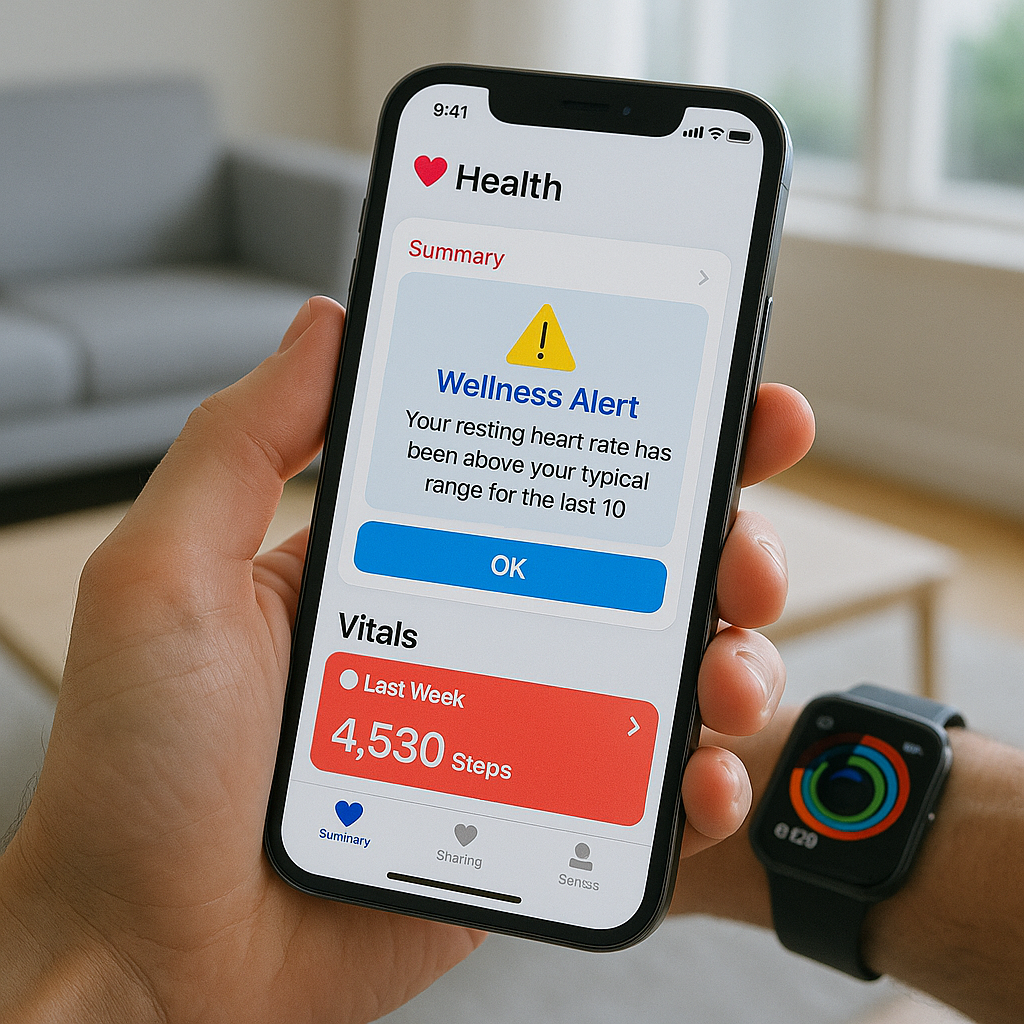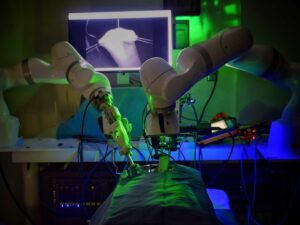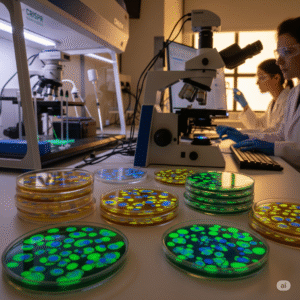July 17, 2025, Cupertino Apple has added a new AI feature to its Health app. The update helps users spot early signs of illness by using health data from the Apple Watch and iPhone. The system looks at things like your heart rate, sleep patterns, oxygen levels, and movement trends.
This new feature is now available on devices running iOS 19 and watchOS 11. No extra setup is needed — it works automatically in the background.
How It Works
The AI compares your daily health stats to your usual patterns. If something unusual shows up — like a sudden drop in sleep or a spike in heart rate — the app will send you a health alert. It might suggest you rest, check your temperature, or even contact your doctor.
Apple says all analysis happens on your device. None of the data is sent to the cloud unless you choose to share it with your doctor or a medical app.
Real-World Testing
This AI system was tested over 18 months with more than 250,000 users. In many cases, it flagged early signs of flu, stress, and even COVID-19 before users felt symptoms.
One early tester said the system warned him of possible dehydration before a long-distance run. Others received alerts that led them to discover infections or blood pressure spikes.
Medical and Privacy Support
Doctors say the new feature won’t replace real checkups, but it could help people stay ahead of health problems. “This kind of tool gives patients more control and awareness,” said Dr. Lisa Monroe of Stanford Health.
Apple confirmed that all health data is encrypted and never used for advertising. You can delete all stored health data with one tap in the app’s privacy settings.
What’s Next
Later this year, Apple will release a tool that lets doctors send care tips and medication reminders directly into the Health app. Users will also be able to schedule telehealth visits from inside the app with supported providers.
Conclusion
Apple’s new AI health tool gives users a smart way to watch their well-being. With early alerts, strong privacy, and on-device AI, it could change how people use their phones and watches to stay healthy.
Sources: Apple Newsroom, CNET Health, The Verge




